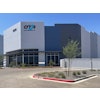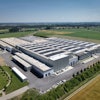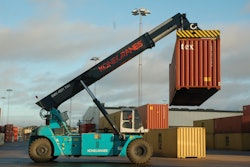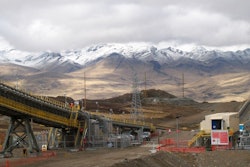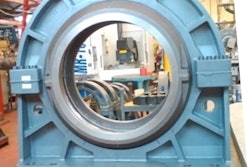More than 1,200 leaders from the emergency response, scientific, policy, conservation and business communities, along with federal and local government officials, are meeting in Washington, D.C. this week to address preparing for and responding to disasters, and building resilient communities in preparation for disasters.
The Diesel Technology Forum (DTF) is a sponsor of the National Council for Science and the Environment’s (NCSE) 13th National Conference: Disasters and Environment: Science, Preparedness, and Resilience which will be held at the Ronald Reagan Building and International Trade Center in Washington, D.C. from January 15 to 17.
As part of its exhibit at the NCSE conference, the DTF will display a mobile 100 kWh diesel-powered generator. With its self-contained fuel supply, rapid response time and full portability, this kind of unit plays a key role in providing emergency power for a wide range of needs.
Hospitals, data centers, water and sewage facilities, fueling stations, and communication and transportation systems require continuous power to protect public health and safety. Emergency backup electrical generators powered by diesel engines provide a unique combination of reliable, immediate and full strength electric power when there is a failure of the primary power supply system.
Superstorm Sandy highlight’s diesel technology’s importance for keeping power on in response and recovery
“Superstorm Sandy here in the Mid-Atlantic region gave us a front row seat to a devastating storm and the immediate and sustained direct impacts on public health and safety, including the loss of electrical power,” says Allen Schaeffer, the Executive Director of DTF. “Diesel powered generators have been on the front lines supplying emergency power to health care facilities, telecommunications networks, internet service as well as airports and public drinking and wastewater treatment systems affected by the storm. Diesel powered heavy- equipment was the first to respond to open roads, restore power and the clean-up of the devastated areas.
“From powering the back-up generators that give hospitals and operating rooms electricity within 10 seconds of a blackout, to fueling military and disaster-relief vehicles, diesel is a key player in protecting our public health and safety,” Schaeffer says.
“As opposed to some other fuels and technologies, diesel-powered generators provide a steady supply of high-quality power and superior performance for transient or fluctuating power demands due to the high-torque characteristics of diesel engines,” Schaeffer says.
Beyond these most critical applications, the power needs for food and medical refrigeration, building operations such as elevators and sprinklers as well as banking and business networks further highlight the significant economic and other losses from power outages.
NOAA reports 14 disasters causing more than $1 billion in damage in 2011
NCSE officials highlight that environmental disasters come in many forms - some natural, some man-made. The National Oceanic and Atmospheric Administration (NOAA) reported that there were 14 disasters causing greater than one billion dollars of damage in the United States in 2011 alone - more than the entire decade of the 1980s.
The goal of the NCSE conference is to develop actionable outcomes that constructively advance decision-making on environmental disasters; the science, preparedness and response which will result in more resilient communities.
“As the U.S. and international emergency response, scientific and government officials explore new strategies to prepare for future disasters, there’s no question that access to reliable electrical power will be high on that list. The proven durability, superior performance and dependability of diesel technology will make it a major component in emergency and disaster response planning throughout the world,” Schaeffer says.

